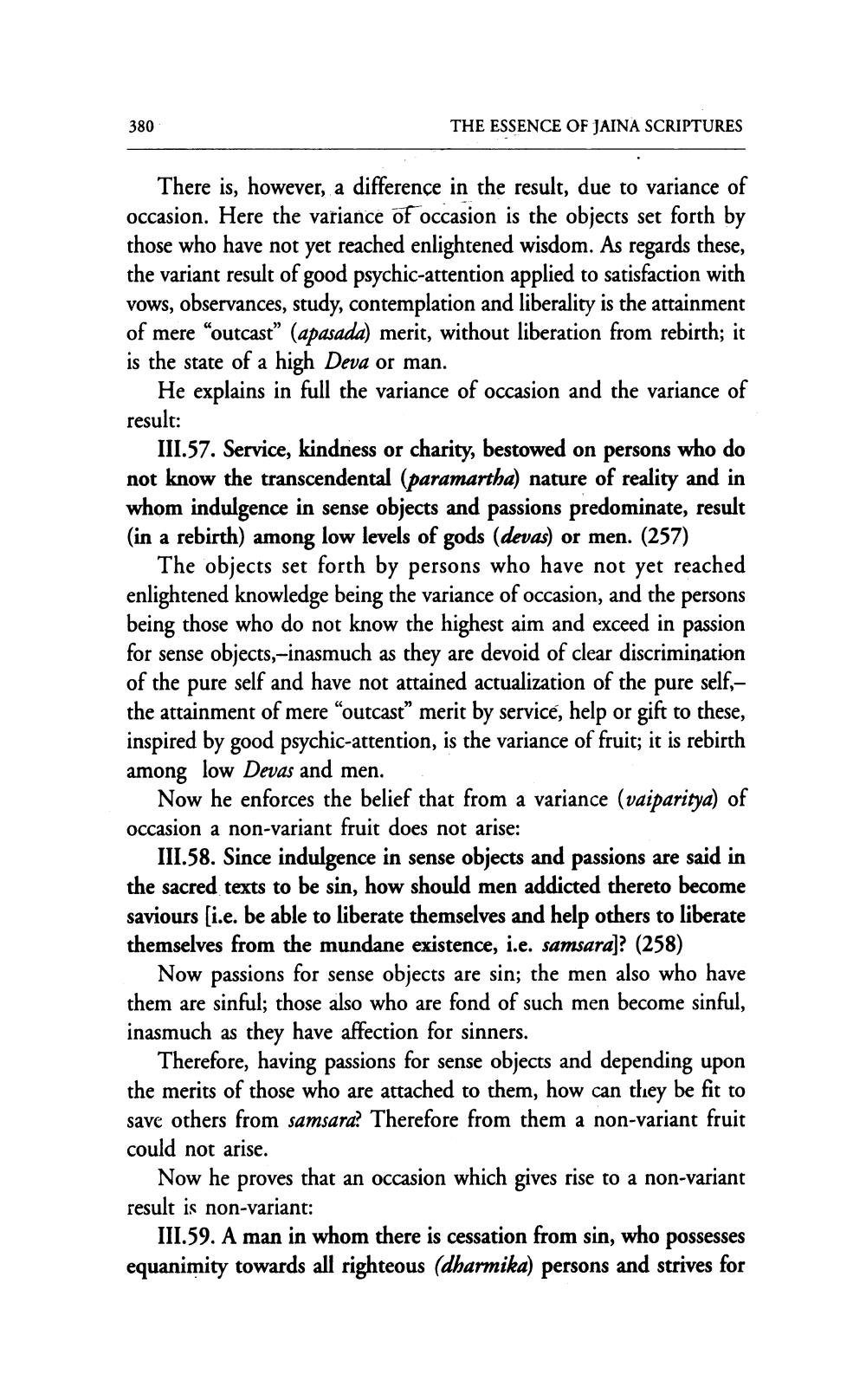________________
380
THE ESSENCE OF JAINA SCRIPTURES
There is, however, a difference in the result, due to variance of occasion. Here the variance of occasion is the objects set forth by those who have not yet reached enlightened wisdom. As regards these, the variant result of good psychic-attention applied to satisfaction with vows, observances, study, contemplation and liberality is the attainment of mere "outcast” (apasada) merit, without liberation from rebirth; it is the state of a high Deva or man.
He explains in full the variance of occasion and the variance of result:
III.57. Service, kindness or charity, bestowed on persons who do not know the transcendental (paramartha) nature of reality and in whom indulgence in sense objects and passions predominate, result (in a rebirth) among low levels of gods (devas) or men. (257)
The objects set forth by persons who have not yet reached enlightened knowledge being the variance of occasion, and the persons being those who do not know the highest aim and exceed in passion for sense objects,-inasmuch as they are devoid of clear discrimination of the pure self and have not attained actualization of the pure self,– the attainment of mere "outcast" merit by service, help or gift to these, inspired by good psychic-attention, is the variance of fruit; it is rebirth among low Devas and men.
Now he enforces the belief that from a variance (vaiparitya) of occasion a non-variant fruit does not arise:
III.58. Since indulgence in sense objects and passions are said in the sacred texts to be sin, how should men addicted thereto become saviours [i.e. be able to liberate themselves and help others to liberate themselves from the mundane existence, i.e. samsara)? (258)
Now passions for sense objects are sin; the men also who have them are sinful; those also who are fond of such men become sinful, inasmuch as they have affection for sinners.
Therefore, having passions for sense objects and depending upon the merits of those who are attached to them, how can they be fit to save others from samsara? Therefore from them a non-variant fruit could not arise.
Now he proves that an occasion which gives rise to a non-variant result is non-variant:
III.59. A man in whom there is cessation from sin, who possesses equanimity towards all righteous (dharmika) persons and strives for




